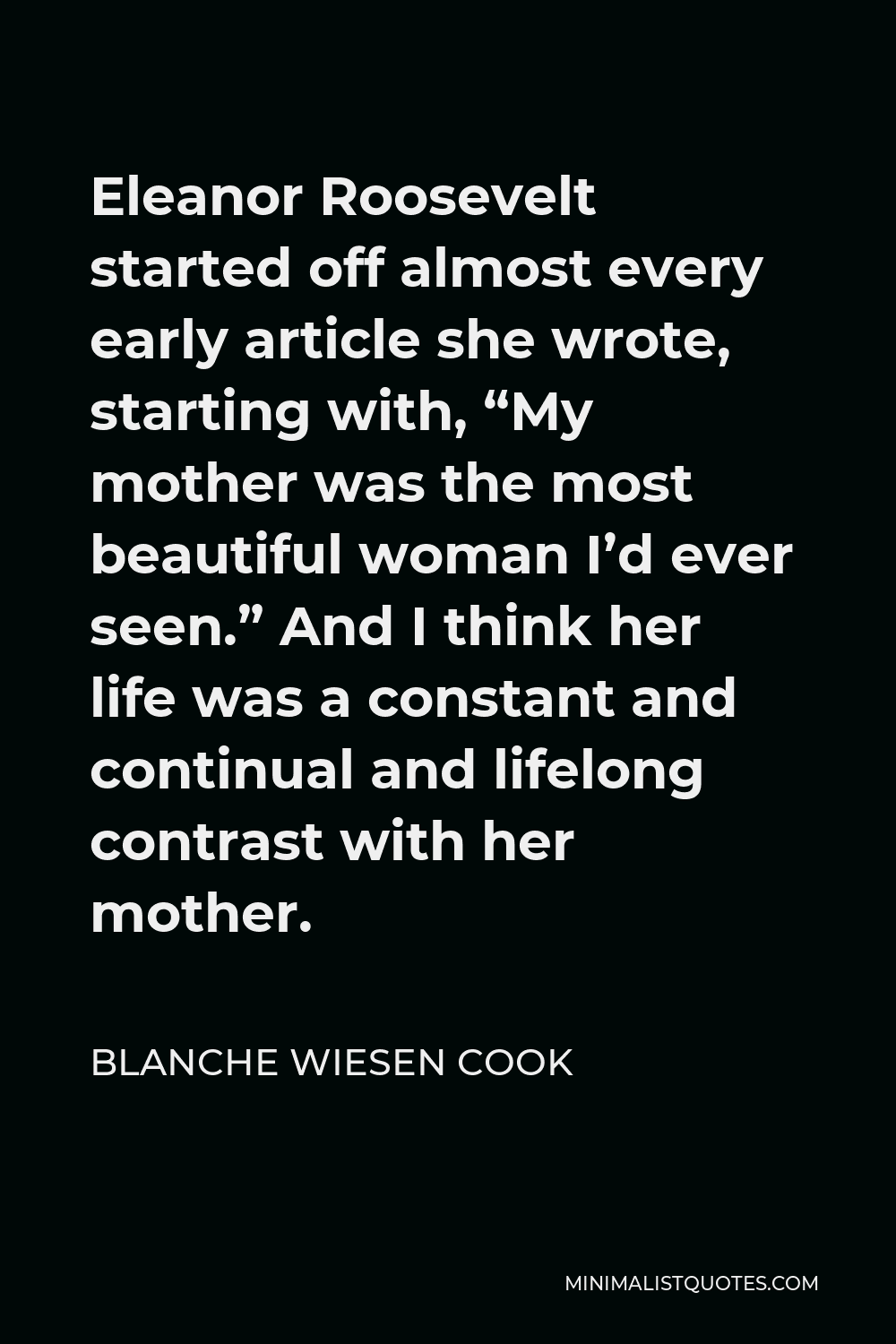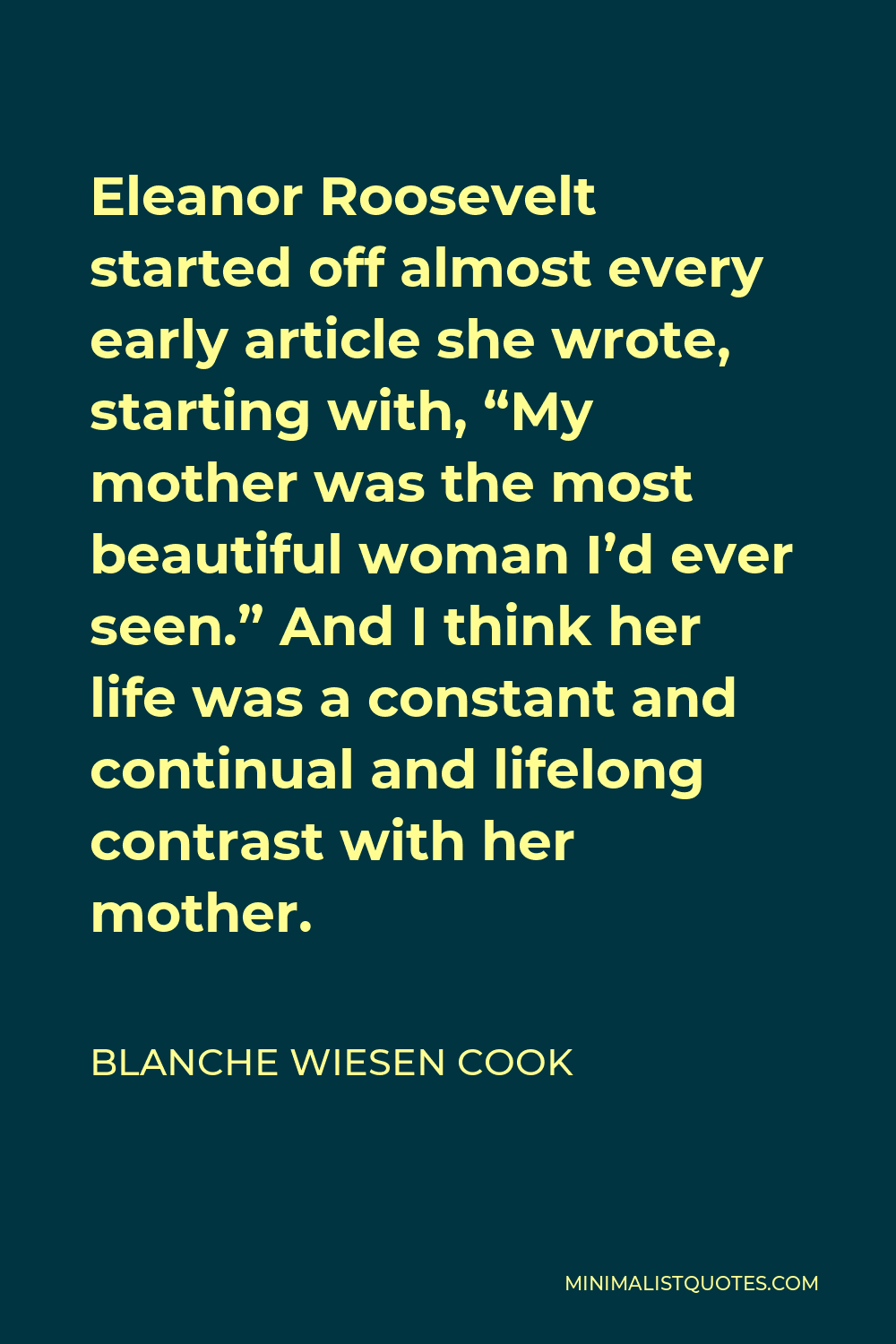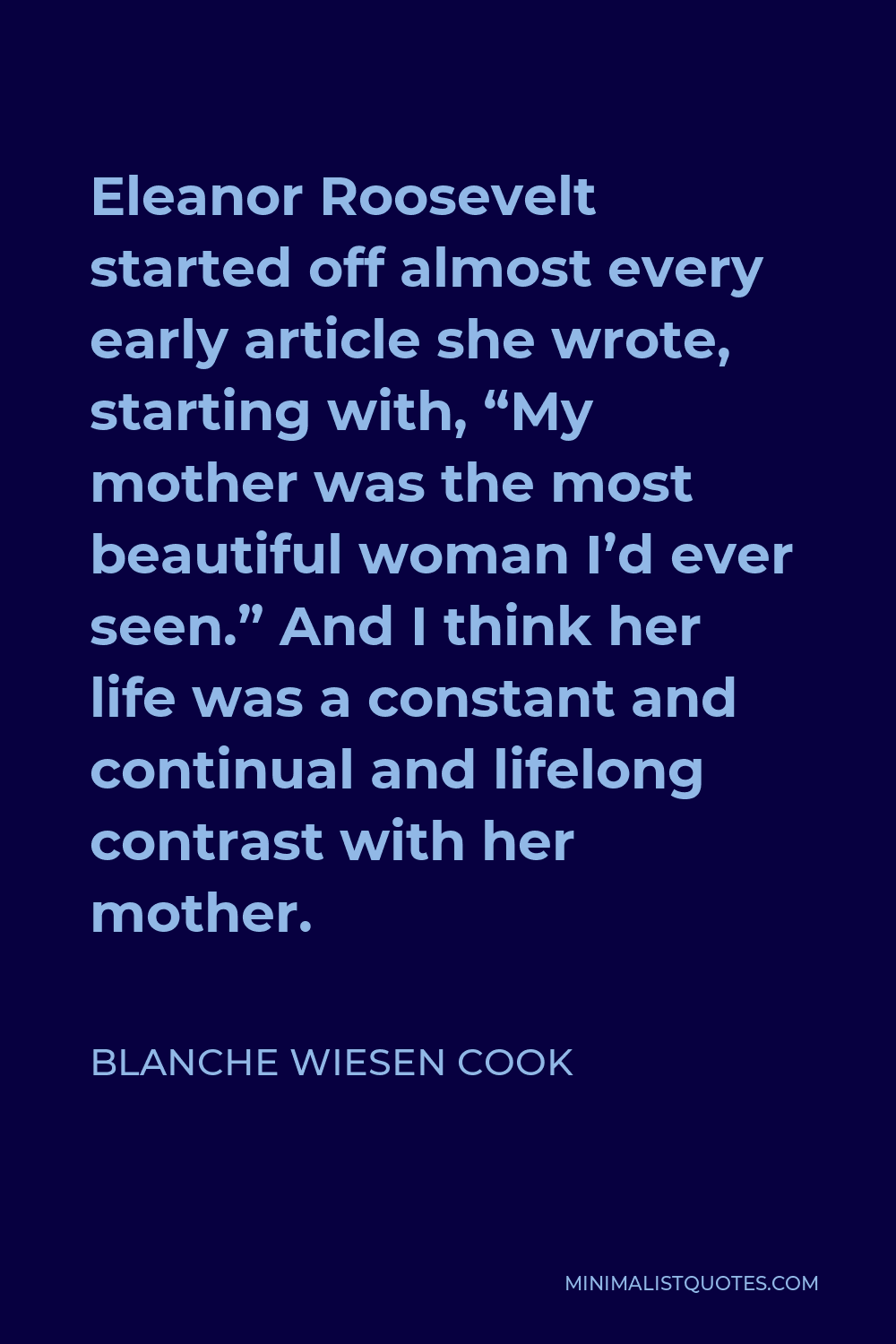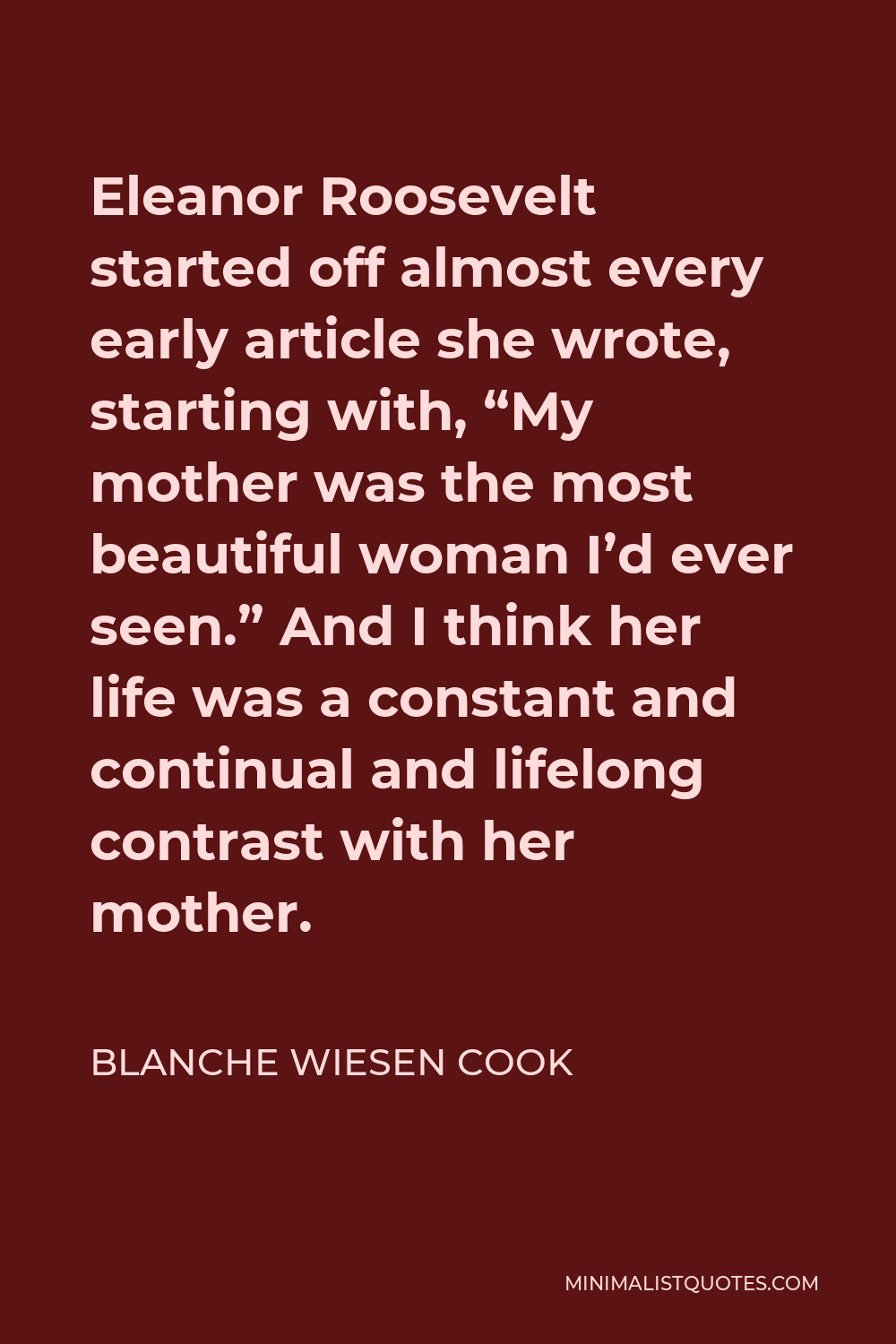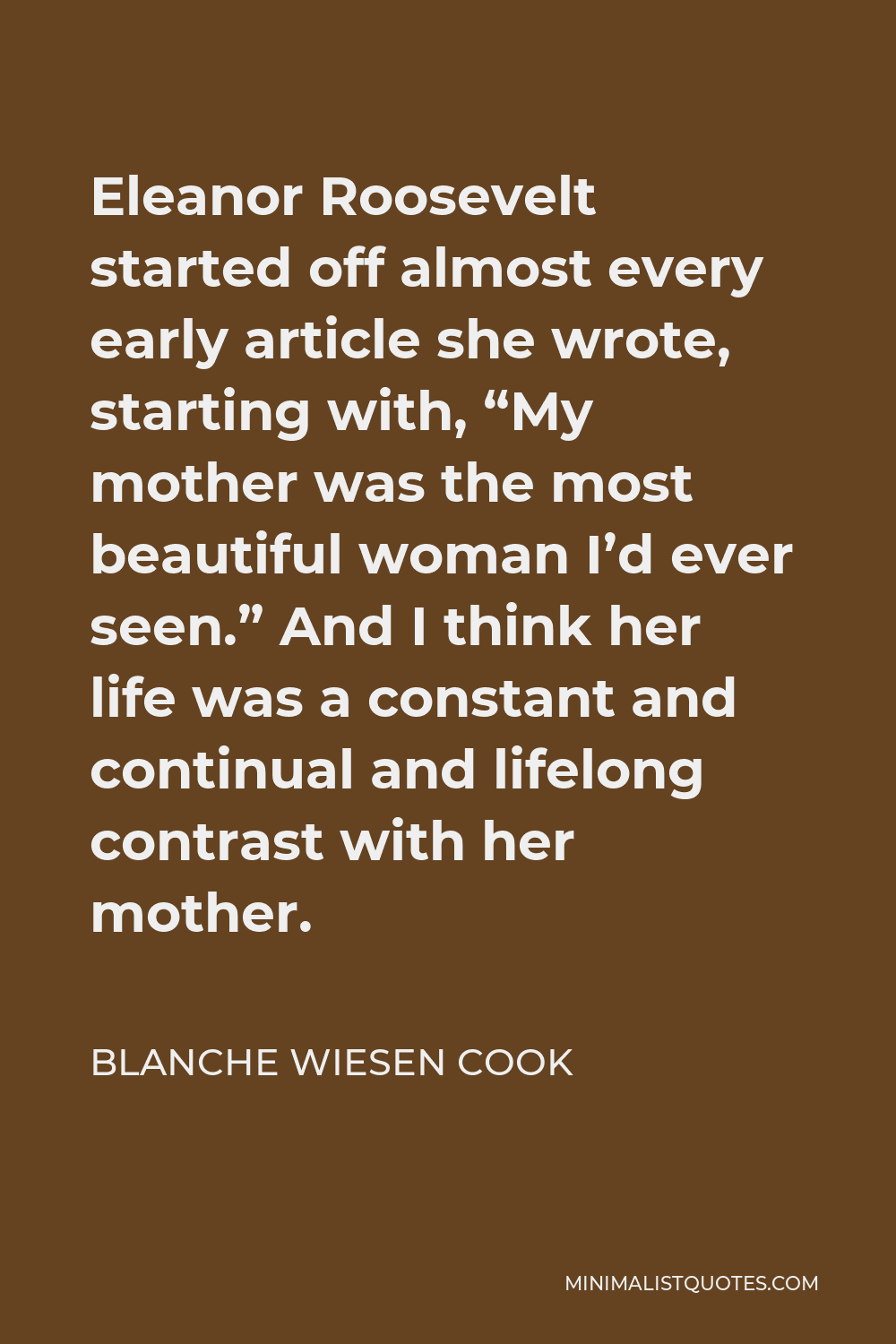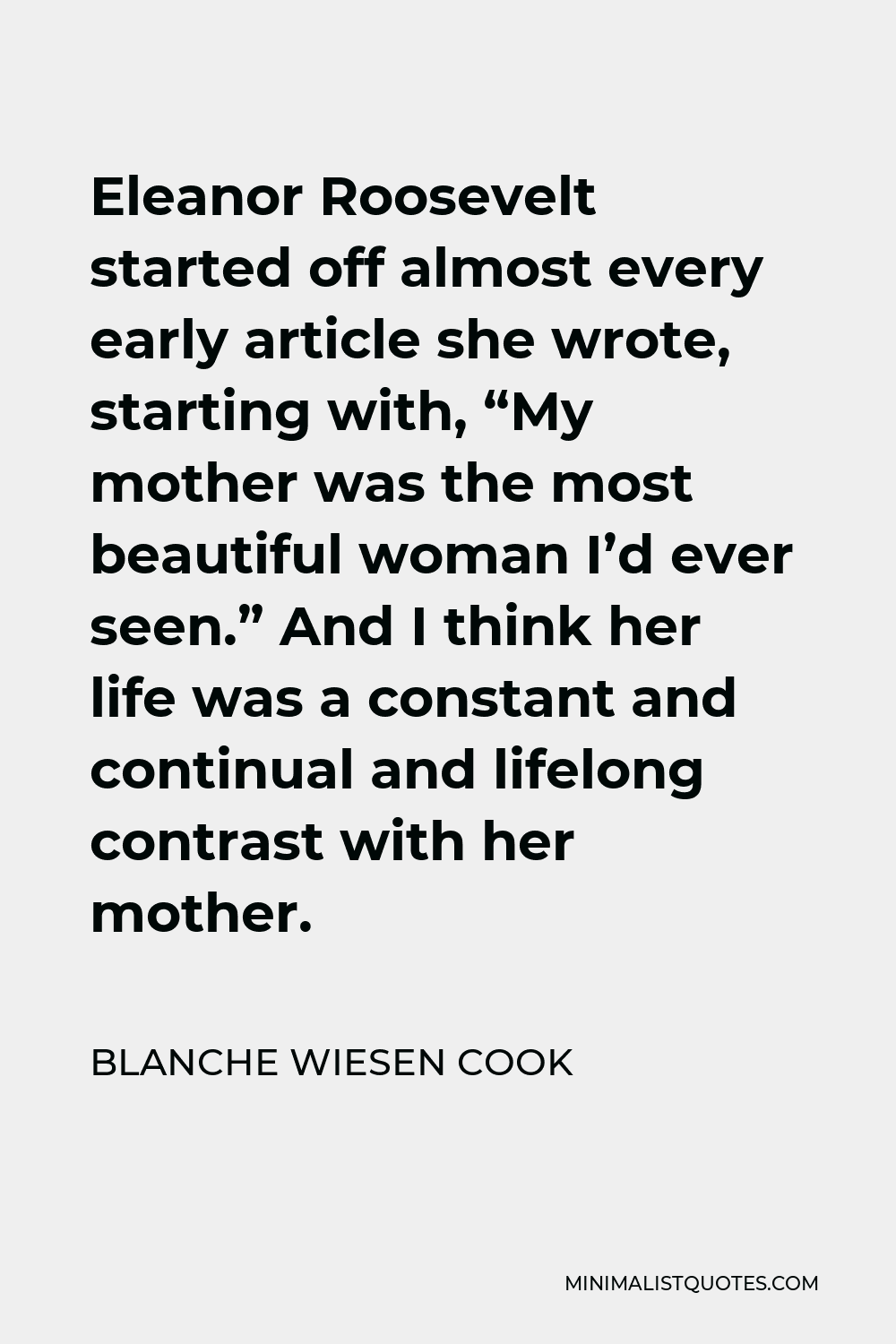She’s very warm about her grandmother, even though, if you look at contemporary accounts, they’re accounts of horror at the Dickensian scene that Tivoli represents: bleak and drear and dark and unhappy. But Eleanor Roosevelt in her own writings is not very unhappy about Tivoli.
BLANCHE WIESEN COOKEleanor Roosevelt started off almost every early article she wrote, starting with, “My mother was the most beautiful woman I’d ever seen.” And I think her life was a constant and continual and lifelong contrast with her mother.
More Blanche Wiesen Cook Quotes
-





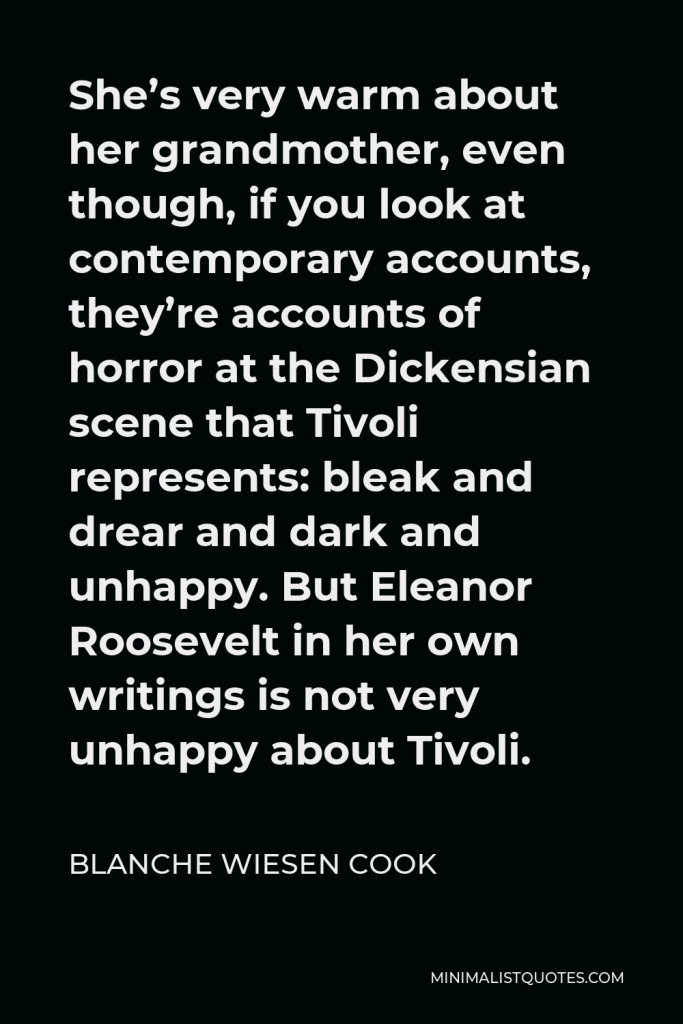

-





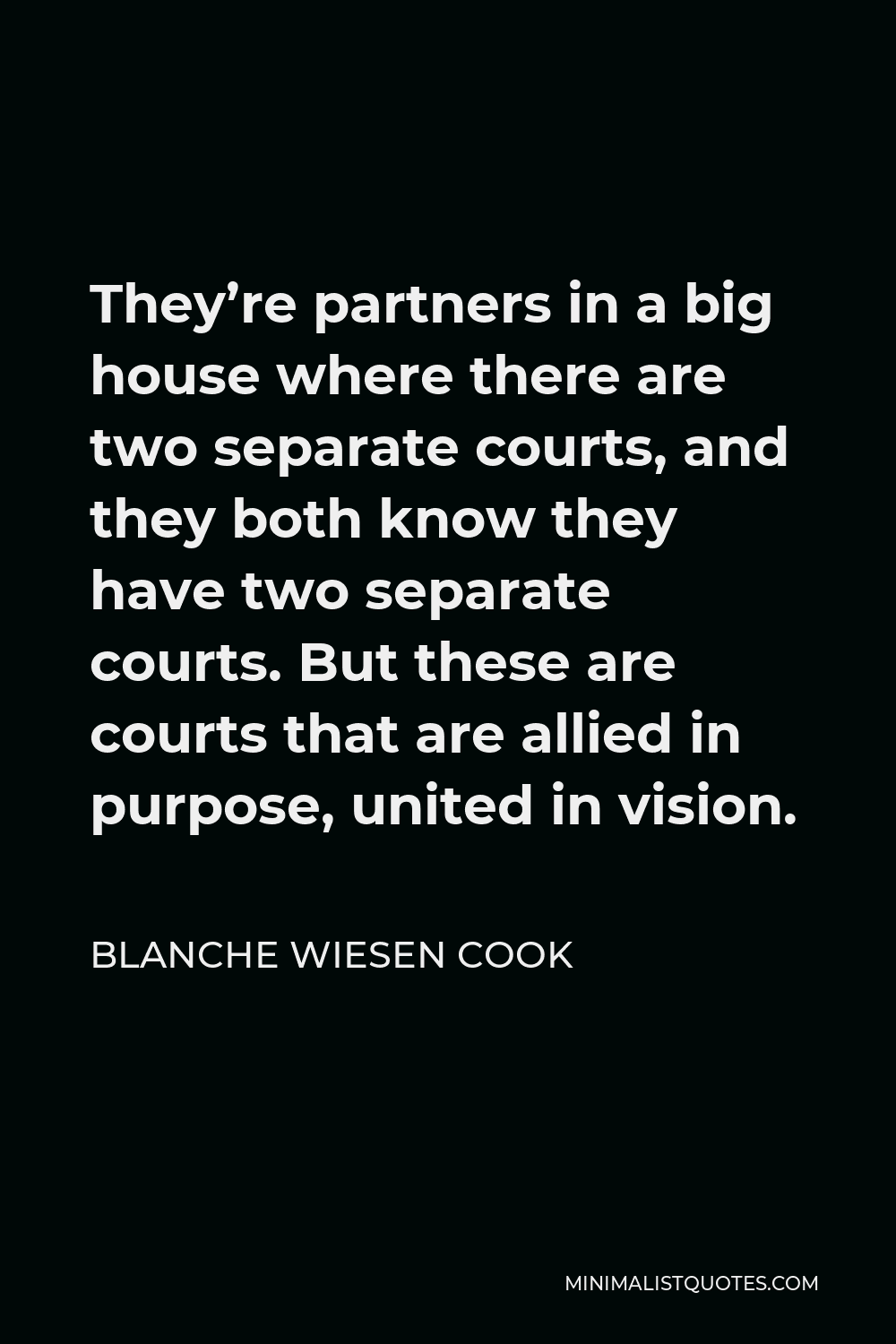
They’re partners in a big house where there are two separate courts, and they both know they have two separate courts. But these are courts that are allied in purpose, united in vision.
BLANCHE WIESEN COOK -





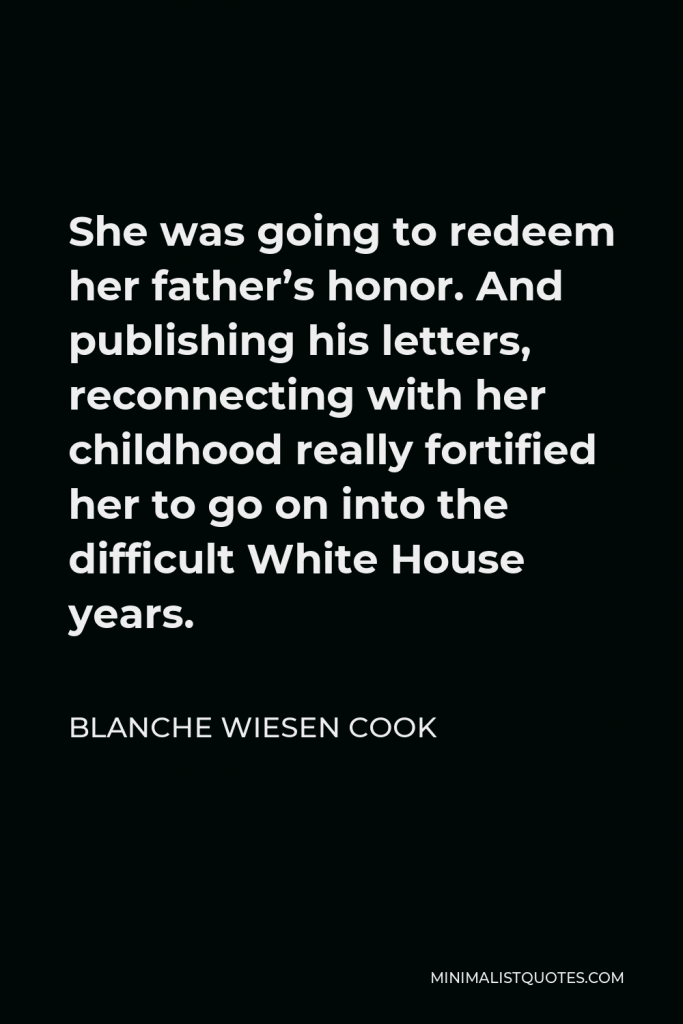

She was going to redeem her father’s honor. And publishing his letters, reconnecting with her childhood really fortified her to go on into the difficult White House years.
BLANCHE WIESEN COOK -






I think FDR was very dashing and charming and debonair, and probably reminded her of her father. A great bon-vivant. He loved to party.
BLANCHE WIESEN COOK -





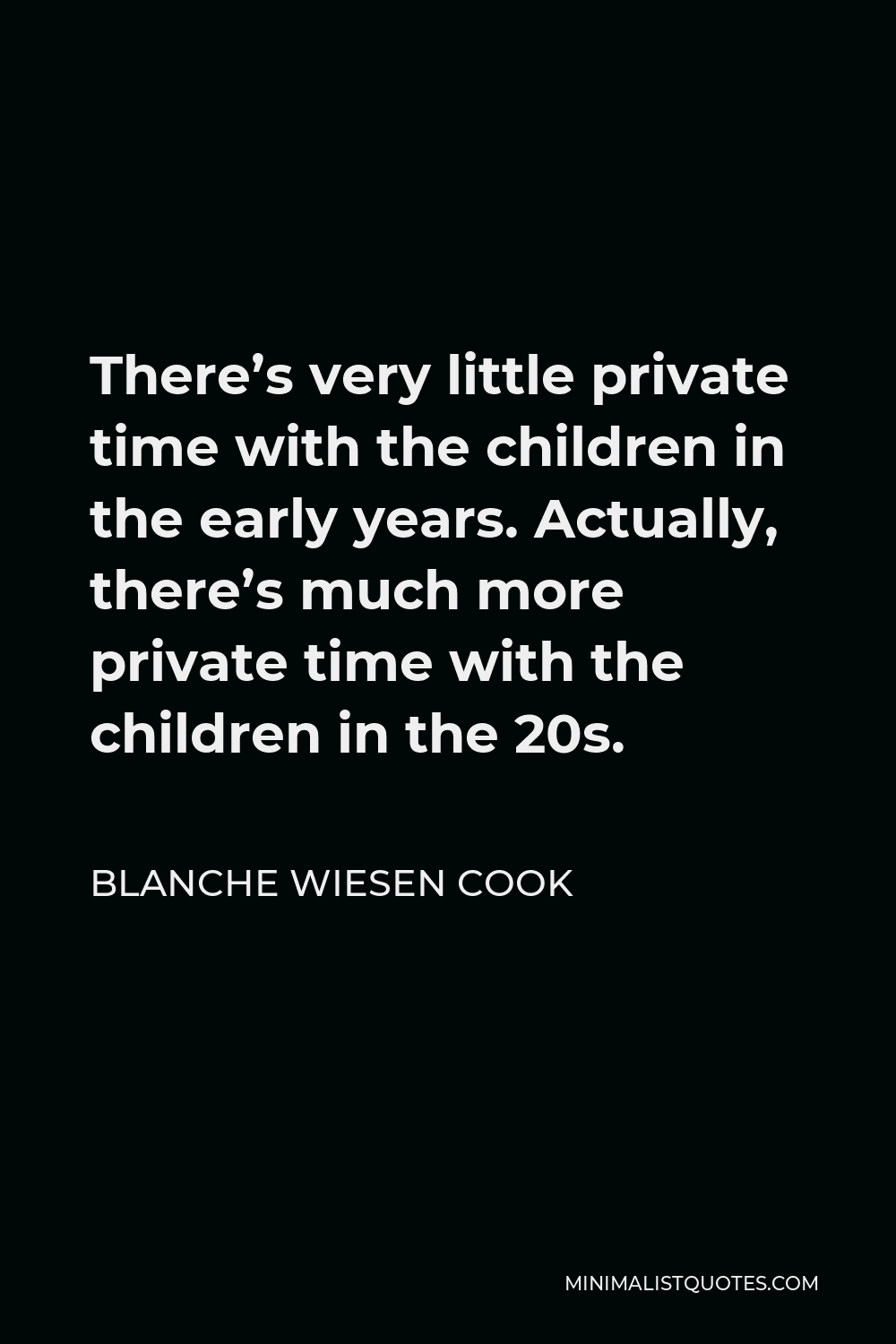
There’s very little private time with the children in the early years. Actually, there’s much more private time with the children in the 20s.
BLANCHE WIESEN COOK -





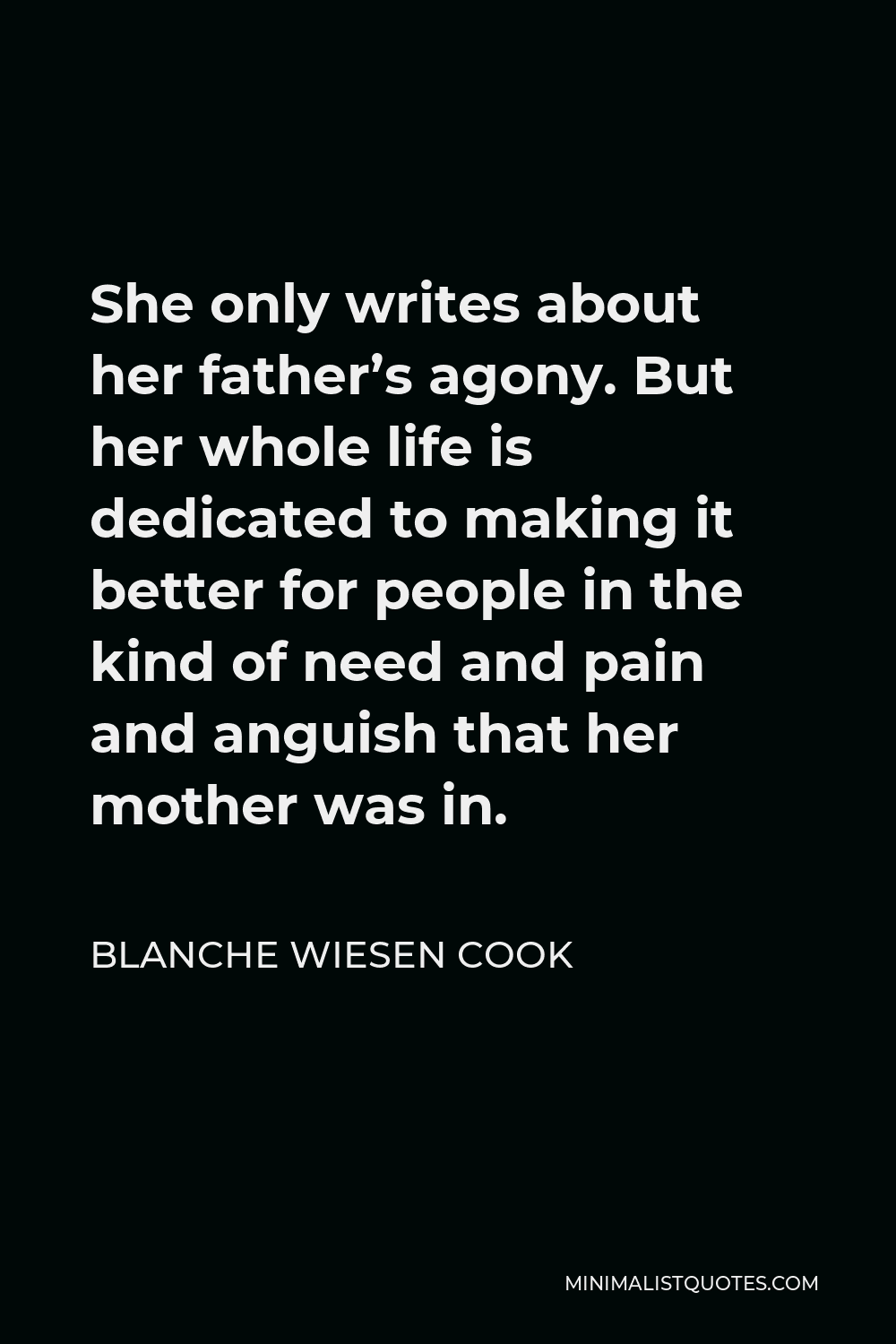
She only writes about her father’s agony. But her whole life is dedicated to making it better for people in the kind of need and pain and anguish that her mother was in.
BLANCHE WIESEN COOK -





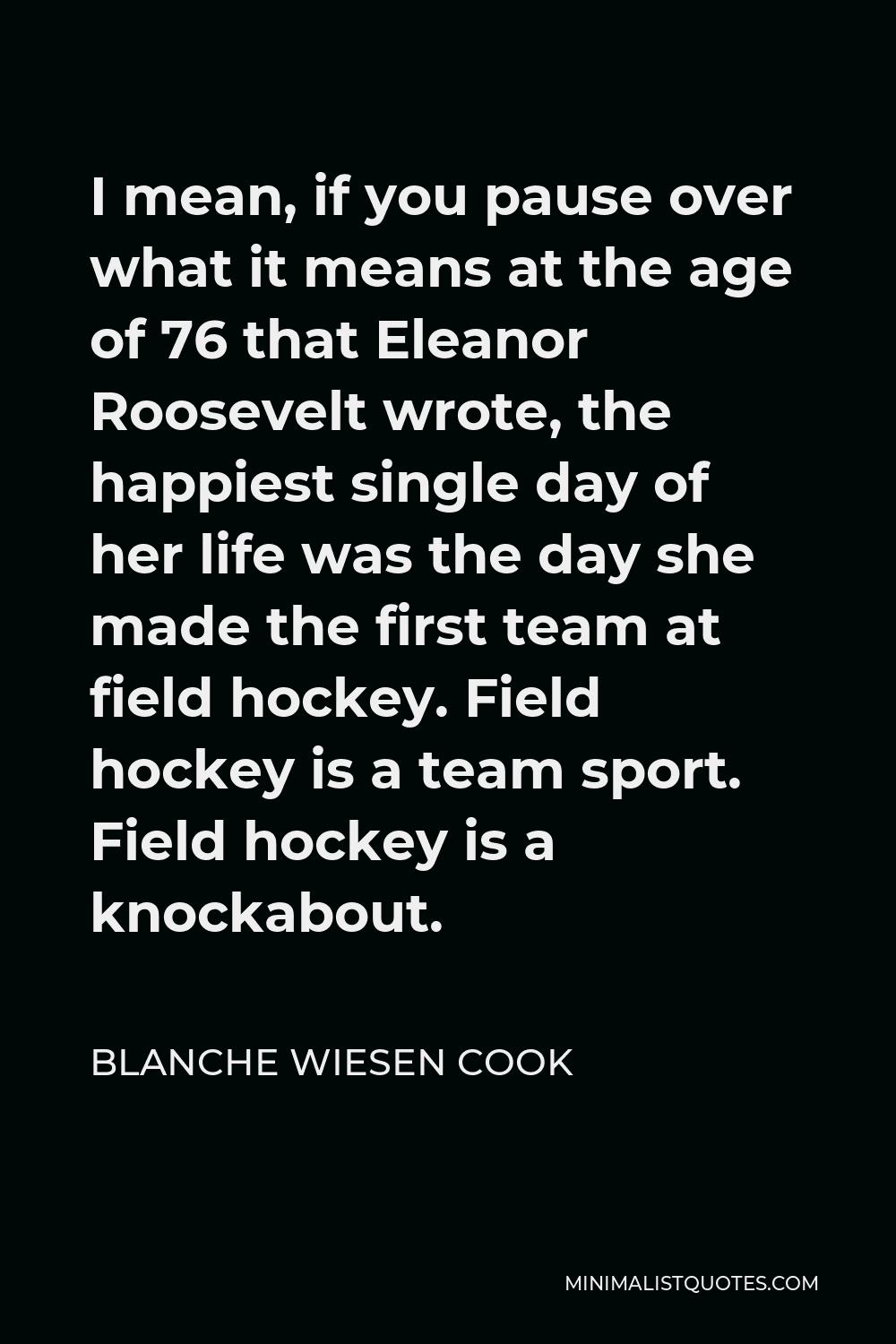
I mean, if you pause over what it means at the age of 76 that Eleanor Roosevelt wrote, the happiest single day of her life was the day she made the first team at field hockey. Field hockey is a team sport. Field hockey is a knockabout.
BLANCHE WIESEN COOK -





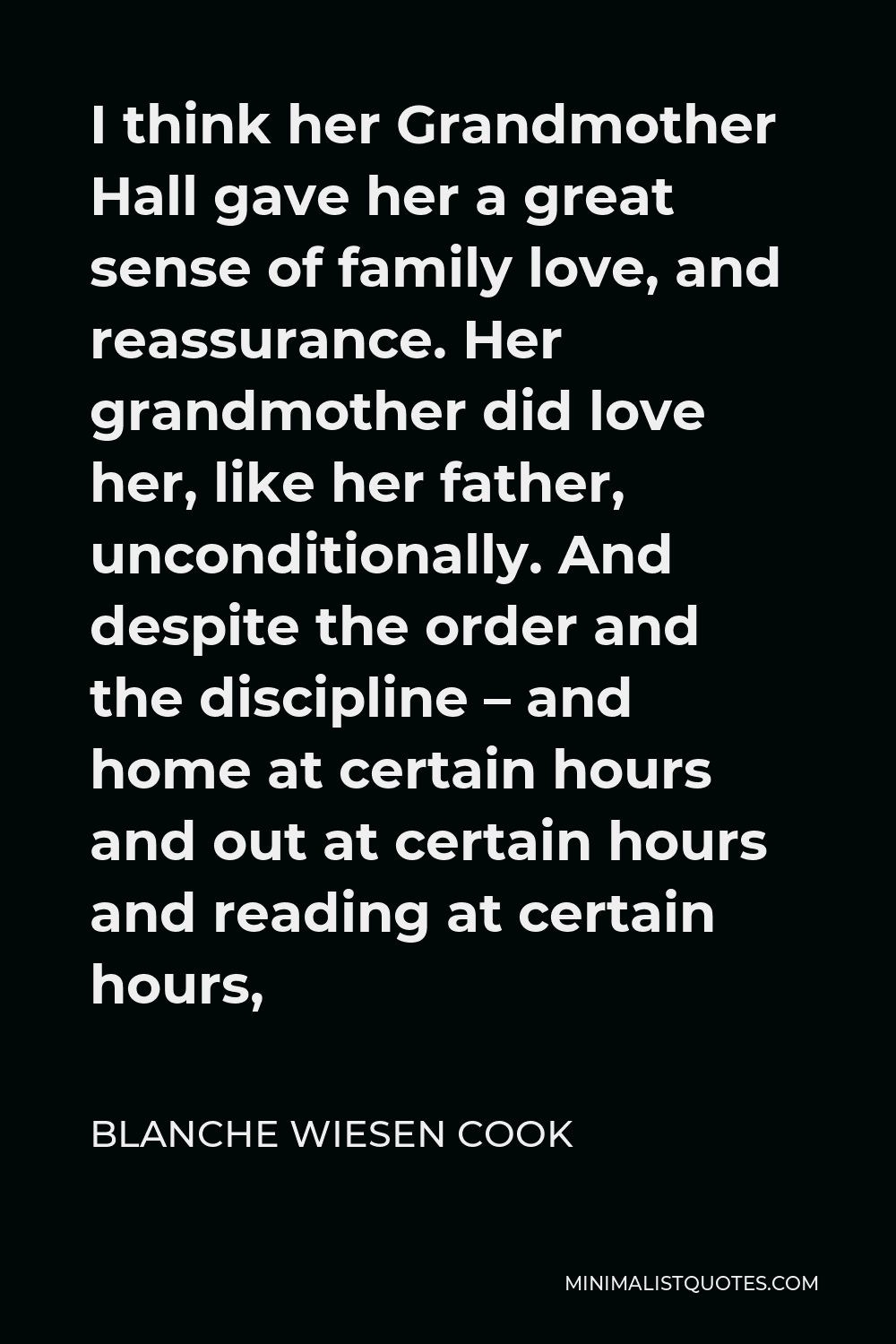
I think her Grandmother Hall gave her a great sense of family love, and reassurance. Her grandmother did love her, like her father, unconditionally. And despite the order and the discipline – and home at certain hours and out at certain hours and reading at certain hours,
BLANCHE WIESEN COOK -





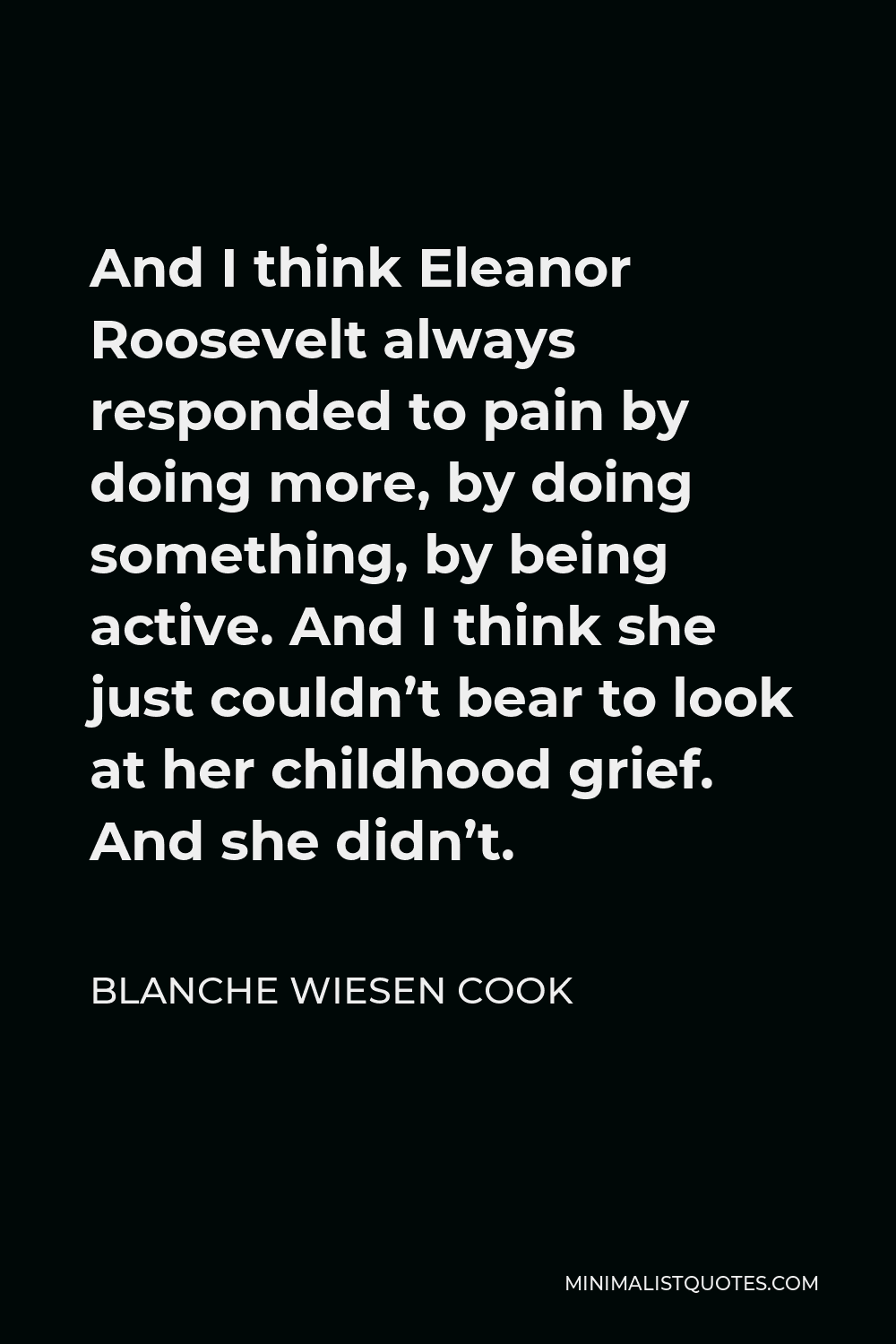
And I think Eleanor Roosevelt always responded to pain by doing more, by doing something, by being active. And I think she just couldn’t bear to look at her childhood grief. And she didn’t.
BLANCHE WIESEN COOK -





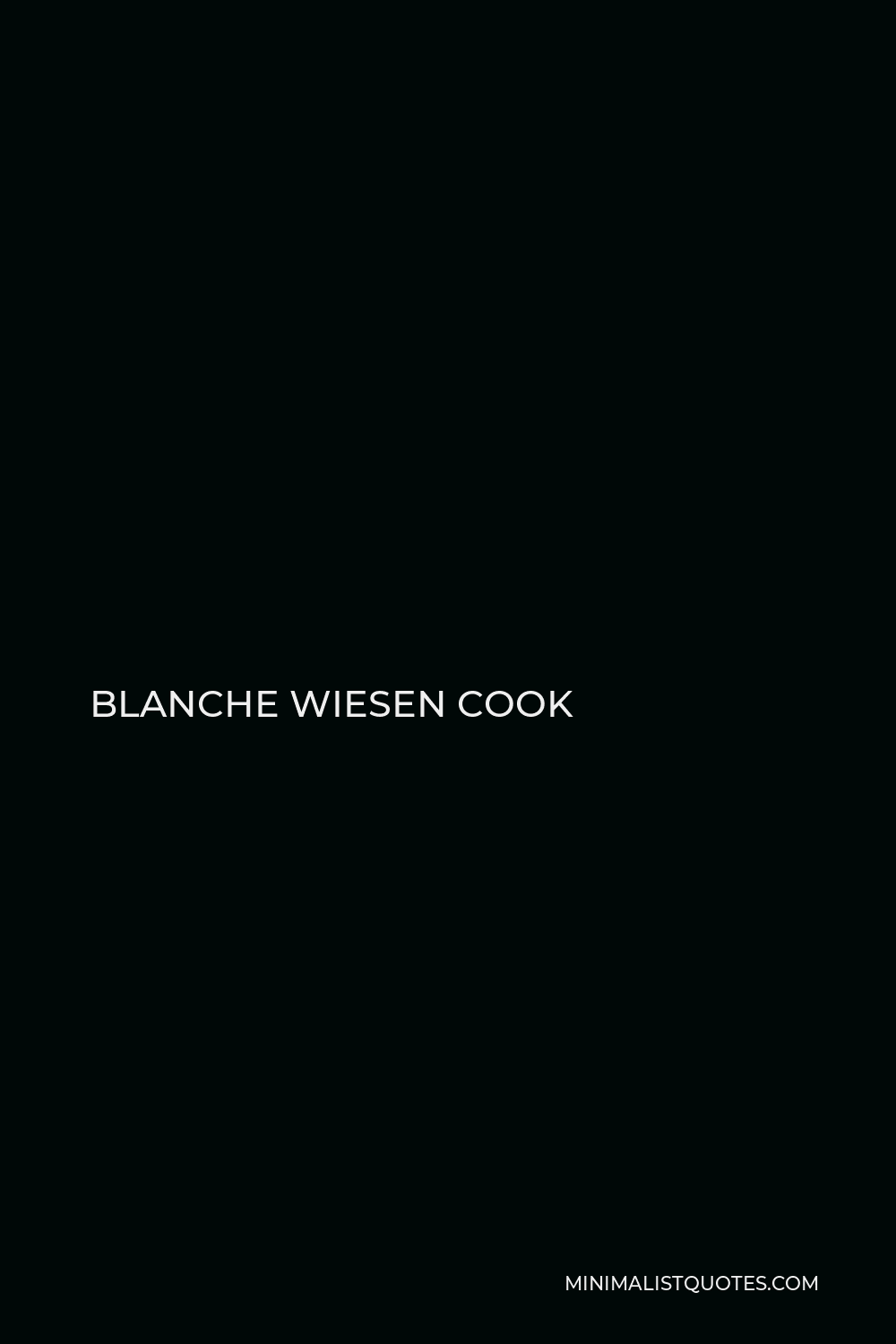
Eleanor Roosevelt doesn’t ever do anything that is going to hurt her husband. She tries things out on him. She gets permission to do things.
BLANCHE WIESEN COOK -





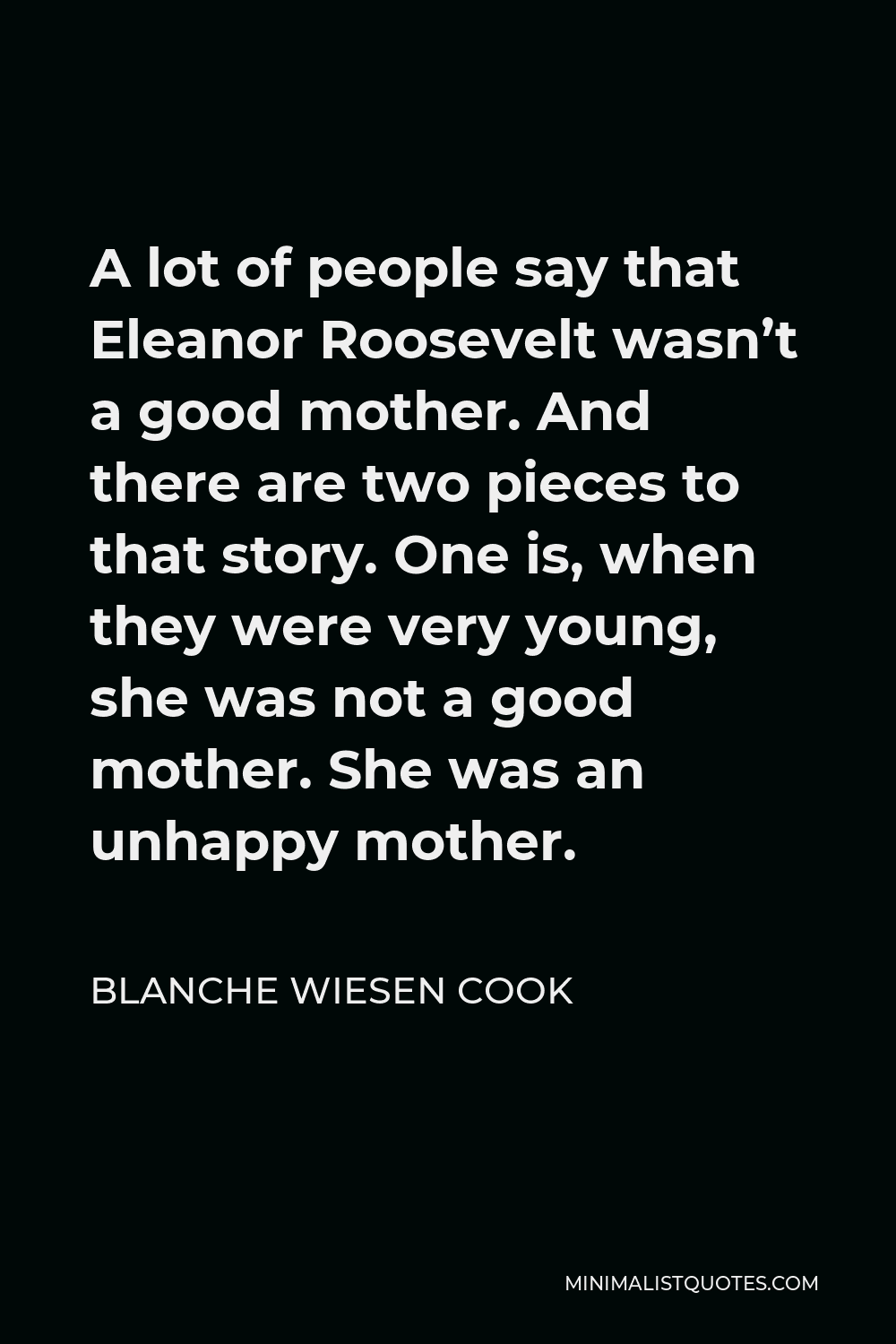
A lot of people say that Eleanor Roosevelt wasn’t a good mother. And there are two pieces to that story. One is, when they were very young, she was not a good mother. She was an unhappy mother.
BLANCHE WIESEN COOK -





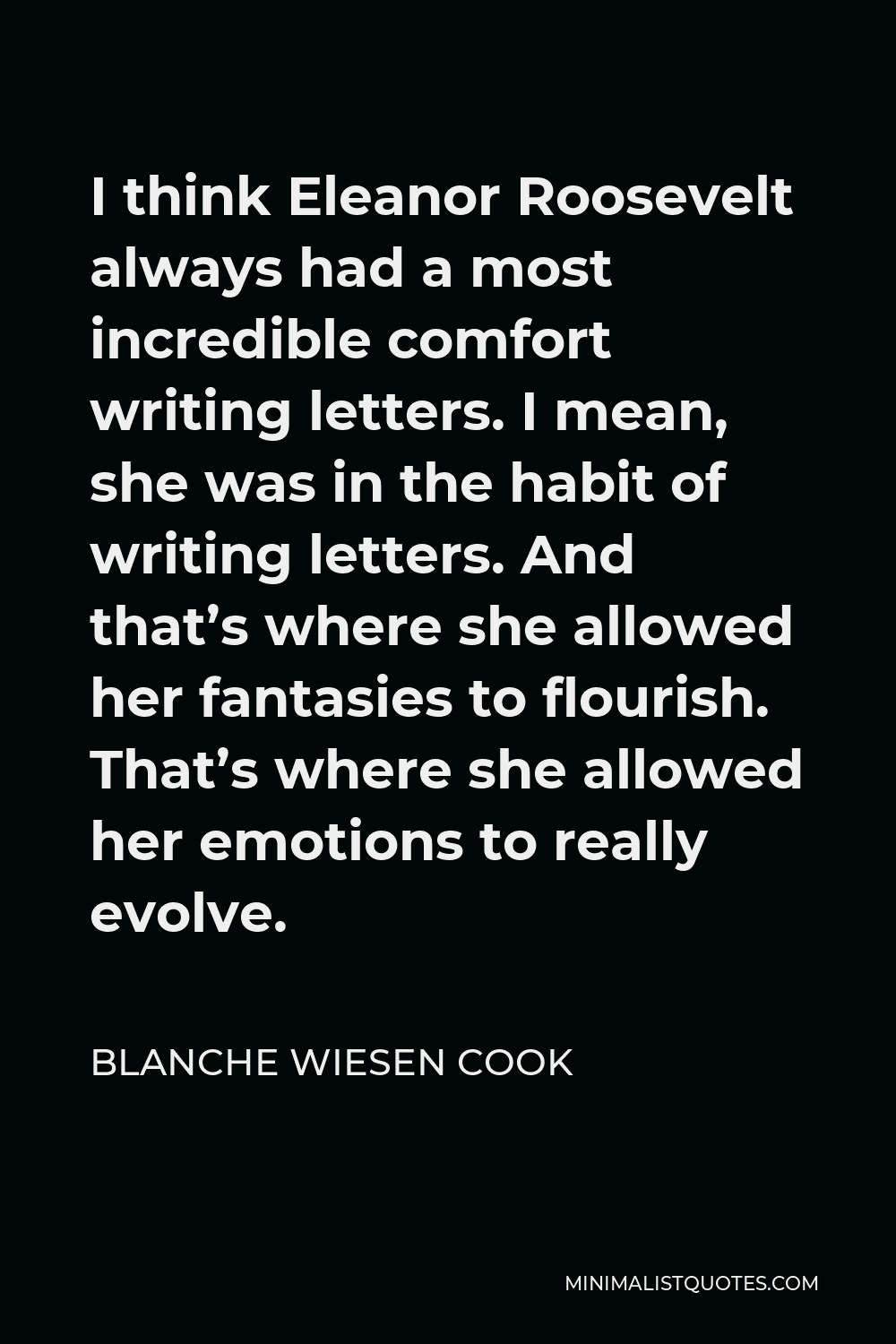
I think Eleanor Roosevelt always had a most incredible comfort writing letters. I mean, she was in the habit of writing letters. And that’s where she allowed her fantasies to flourish. That’s where she allowed her emotions to really evolve.
BLANCHE WIESEN COOK -





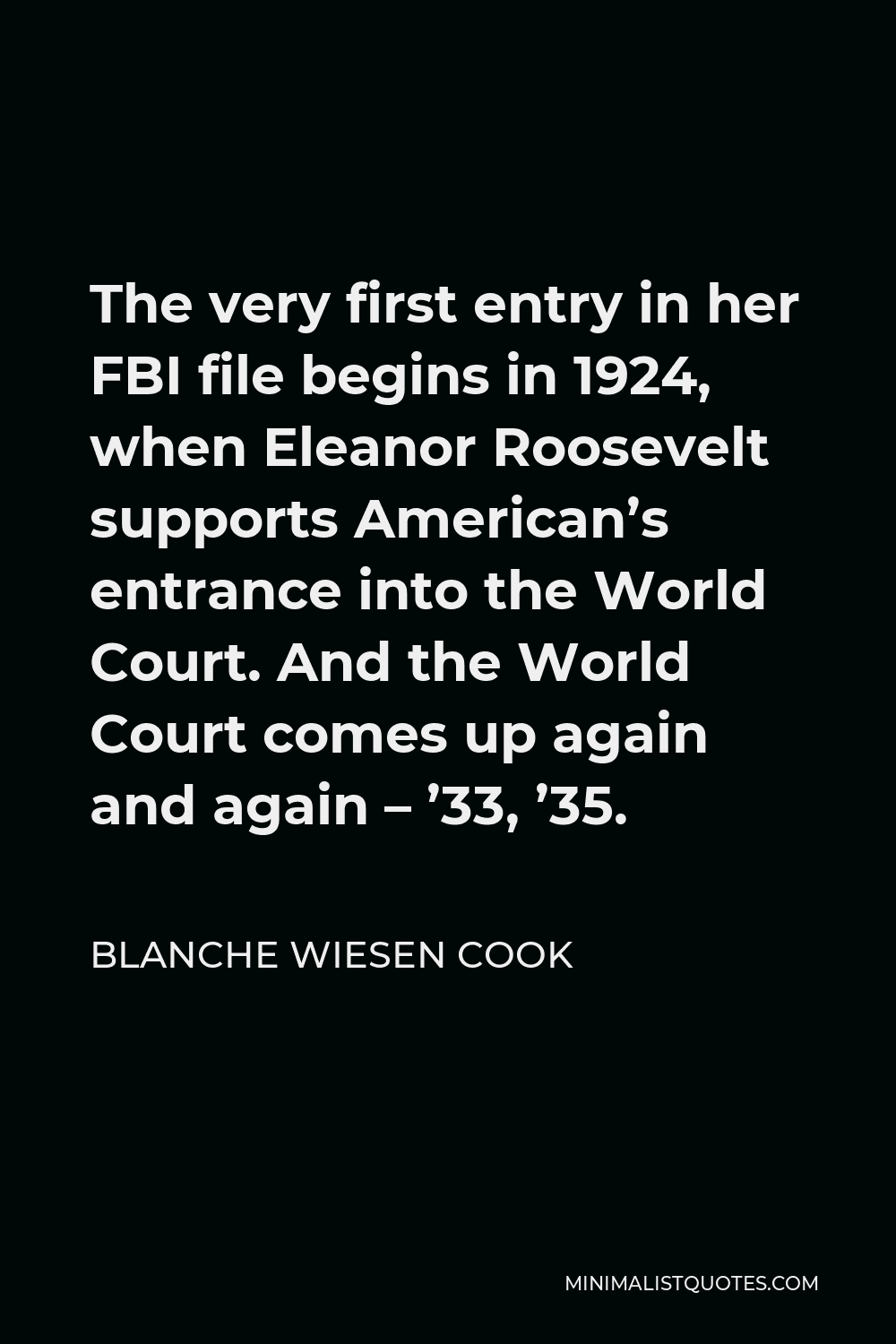
The very first entry in her FBI file begins in 1924, when Eleanor Roosevelt supports American’s entrance into the World Court. And the World Court comes up again and again – ’33, ’35.
BLANCHE WIESEN COOK -







He loved to sing. He loved to have fun. And he wrote beautiful letters, just as her father did, which – alas and alack – Eleanor Roosevelt destroyed. But she refers to his beautiful letters. And she was charmed by him.
BLANCHE WIESEN COOK -





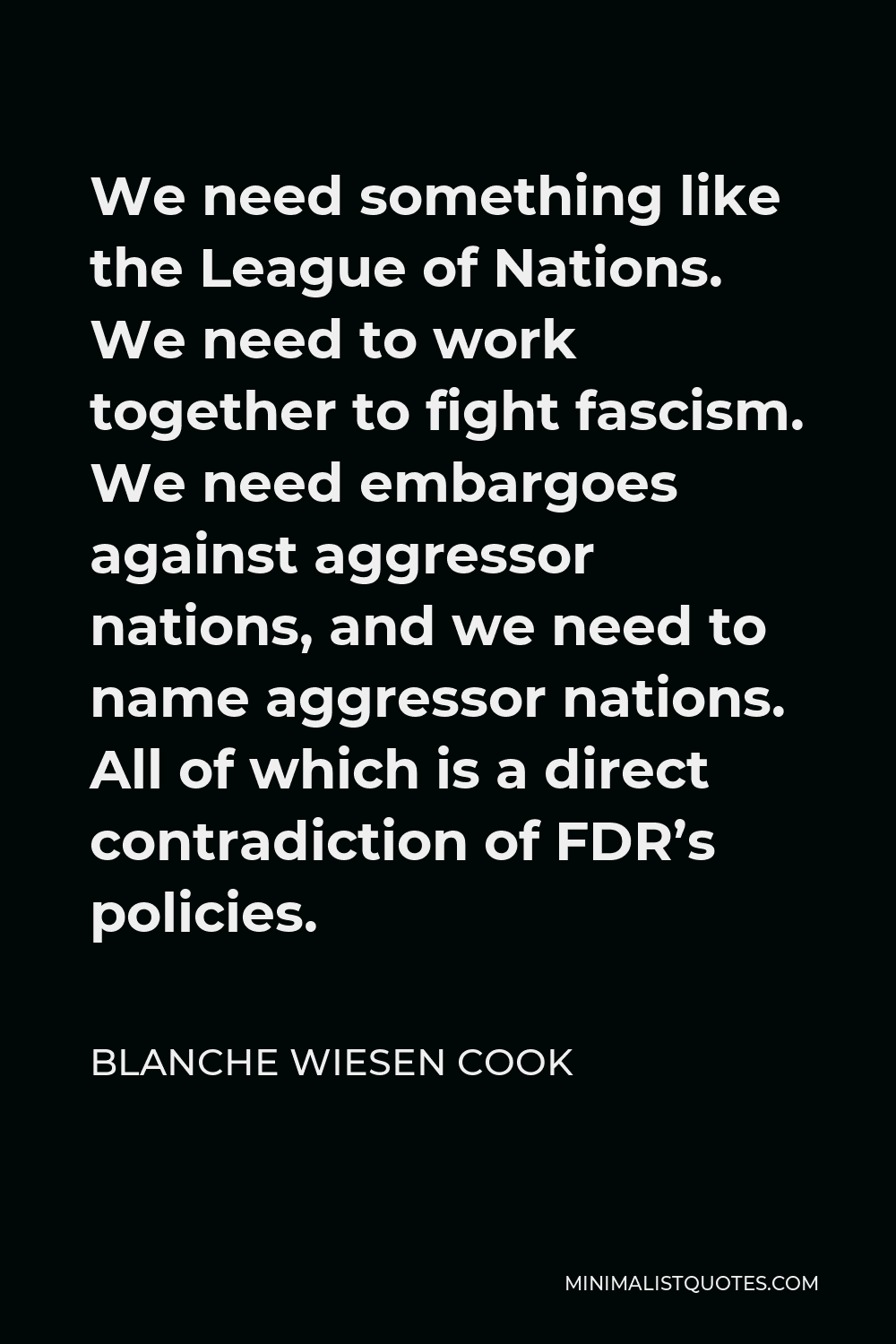
We need something like the League of Nations. We need to work together to fight fascism. We need embargoes against aggressor nations, and we need to name aggressor nations. All of which is a direct contradiction of FDR’s policies.
BLANCHE WIESEN COOK -





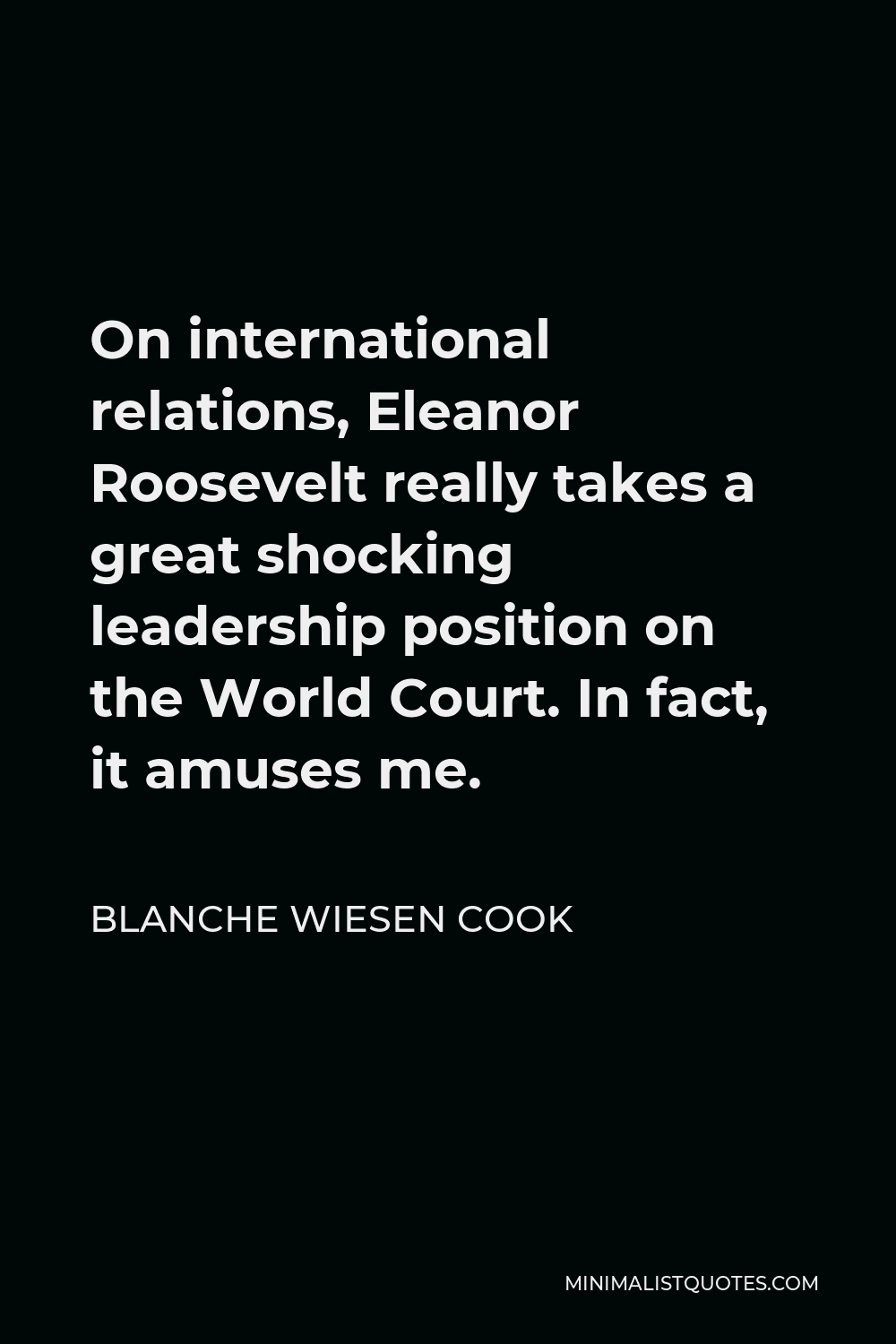
On international relations, Eleanor Roosevelt really takes a great shocking leadership position on the World Court. In fact, it amuses me.
BLANCHE WIESEN COOK
